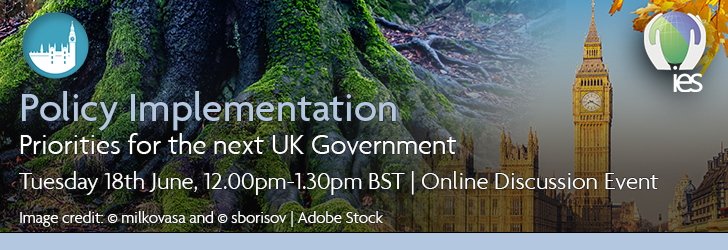Implementing environmental policy will be the challenge of the next decade, both for the UK and the rest of the world. The public's environmental ambitions have never been higher, though meeting those aspirations will require environmental policies to be delivered effectively and strategically.
One key example is Environmental Impact Assessment, where ongoing reforms towards Environmental Outcomes Reports will require careful implementation to ensure that the process is reframed as a tool for better design for people and planet.
The recently announced UK General Election will provide a new opportunity to revisit key environmental policy discussions where intervention is required for the benefit of society, the economy, and the environment. After the election, there will be a short yet crucial window of opportunity to engage with policy makers to solve environmental challenges and co-create a sustainable society where people and nature thrive.
This free online discussion event, hosted by the Environmental Policy Implementation Community (EPIC) and EIA Community, will consider the key issues that the next UK Government should prioritise around delivering environmental policy. This event will give IES members and the wider sector a chance to feed in to the IES's policy work after the current UK General Election. This is a non-political discussion and will not be a platform for engaging with or influencing voters. Attendees will be advised to avoid anything that could be interpreted as support for a political party or candidate.
Engaging with policy makers
This is one of seven events helping IES members to engage with issues arising from the UK General Election and providing the opportunity to influence policy makers during the early days of the next parliamentary term. For more information, see the announcement and our events on land condition, education, climate change, water, clean air, and tackling the triple crisis.
Priorities identified by IES members during these discussions will directly facilitate IES engagement with the next UK Government, though they will not be used to engage with political manifestos, or with specific parties, candidates, or constituencies.


